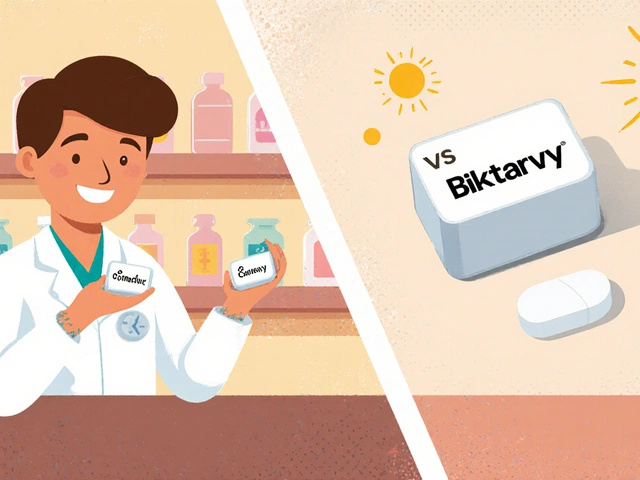Medication experience: real user reports, tips and what to watch
If you want honest medication experience stories without fluff, start here. Real users often share what dose they took, how long it took to work, and what side effects showed up. Those three details matter more than emotional language. When reading, note whether reports come from people with similar age, health problems, or other meds. A pain pill might help a young athlete but hit an older person harder.
Check for consistency across reports. If multiple people mention the same side effect, that’s a signal worth noting. But one odd report doesn’t prove much. Look for patterns: timing of effects, severity, and whether symptoms resolved after stopping. Also watch for vague posts like "it ruined me" without specifics — those tell you feelings but not practical facts.
Think about dose and timing. Two users can list the same drug but different doses and outcomes. A lower dose may reduce side effects but also reduce benefit. Pay attention to how long users tried a drug before deciding it failed. Some meds need weeks to show effect, others act fast. If a report mixes products or supplements, it’s harder to know which item caused the effect.
Use reliable sources alongside user stories. Clinical summaries, medication guides, and pharmacist advice give context and explain known risks. If a user mentions a rare reaction, check official information or talk to a clinician. Online pharmacies and buying guides can help find options, but always confirm prescription requirements and legal status.
How to read reviews safely
Filter reviews by credibility. Verified purchases, long-form experiences with dates, and reports that include doctor feedback are more useful. Ignore anonymous one-liners that repeat marketing or extreme claims. If a story sounds like an ad, it probably is. Save examples of useful reports for your doctor to discuss.
Quick safety checklist
Before trying a new drug, ask: Do I have allergies to similar meds? Am I on drugs that interact? What dose and duration did people use? Did users describe severe side effects like breathing trouble, chest pain, or swelling? If yes, seek medical advice now. Keep a simple log: dose, time, effects, and any other meds. That makes conversations with clinicians clearer.
Our tag page collects many medication experience articles — from antibiotics and diuretics to inhalers and supplements. Use the tag to find personal stories and practical tips, then balance them with clinical info. Read smart, save useful examples, and always check with a healthcare professional before changing treatments.
On this site you can open posts like "How to Buy Zyvox Online Safely" or "Lasix Uses, Benefits, and Safety" to see patient timelines, reported side effects, and dosing examples. Notice co‑medications and health conditions—those change outcomes. If a pattern worries you, save the link and talk about it with your prescriber. If you have a severe or unexpected reaction, tell your doctor and file a report with your national adverse event system.
Bookmark useful threads and bring notes to appointments.

A Patient's Journey: Living with Mycophenolate Mofetil
My journey with Mycophenolate Mofetil began when I was diagnosed with an autoimmune disease. This medication has become a vital part of my daily routine, helping to suppress my overactive immune system. While taking Mycophenolate Mofetil, I've experienced some side effects, but the overall benefits far outweigh the drawbacks. Through regular checkups and open communication with my healthcare team, we've been able to manage my condition effectively. Living with Mycophenolate Mofetil has taught me the importance of self-care and maintaining a healthy lifestyle to support my treatment.
Read More




